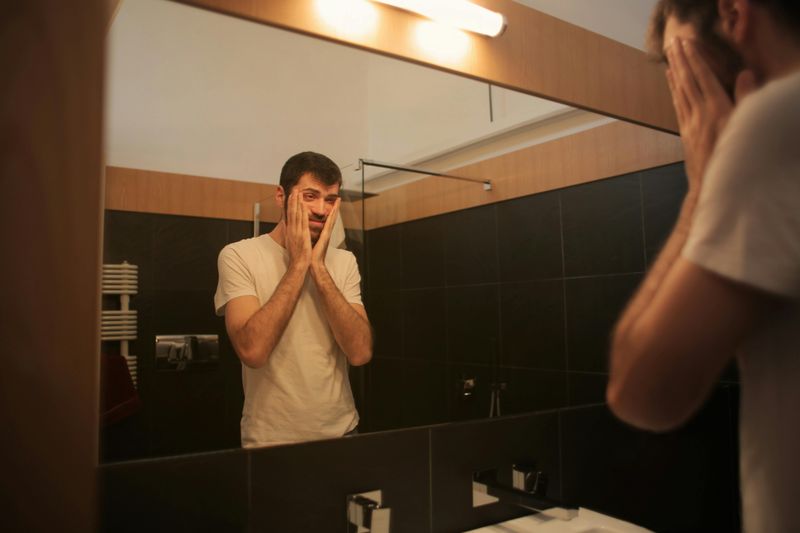8 Unspoken Pressures Men Secretly Face in Relationships

Behind the scenes of many relationships, men often struggle with pressures they rarely talk about. These silent expectations can create stress and confusion for guys who want to be good partners but feel trapped by unwritten rules. Understanding these hidden challenges can help both people in a relationship communicate better and build stronger bonds.
1. Always Being the Provider

It’s not just about dollars and cents—money can carry emotional weight for men in relationships. Conditioned to be providers, many men feel the pressure to measure up financially, even when no one says it out loud. The stress of promotions, emergency costs, or future plans can lead to silent self-doubt.
The pressure can grow heavier when his partner earns more, creating an invisible competition he never signed up for. What’s rarely discussed is how financial pressure seeps into confidence, affection, and even intimacy. Some men end up hiding their worries instead of asking for help, fearing they’ll appear weak. The silent truth is that money is often less about income and more about identity.
2. Hiding Vulnerability

To some, strength means never showing weakness, and silence becomes the mask. Men often carry this lesson into their relationships, holding back their true feelings in fear of losing respect. But the more they suppress, the greater the divide between what they experience and what they express.
A man might want to cry after a rough day, yet the thought of “not being man enough” keeps him stoic. Ironically, partners often crave that raw honesty, but he struggles to bridge the gap. He may even convince himself he’s protecting his loved one by hiding his pain. What gets lost is the intimacy that grows only when vulnerability is allowed to breathe.
3. Initiating Intimacy

Men are often expected to carry the torch of physical closeness, as if desire always starts with them. This can turn intimacy into a responsibility rather than a natural connection. If he’s tired, stressed, or simply not in the mood, the fear of rejection can loom large.
Sometimes, he worries that saying “not tonight” will be misread as disinterest in his partner. The truth is, desire has ebbs and flows for everyone, yet men feel less permission to admit it. Carrying the burden of constant initiation makes intimacy feel like a performance rather than a shared moment. What’s hidden beneath it all is a quiet longing for balance, where both partners reach out equally.
4. Being Emotionally Available Without Guidance

Opening up emotionally doesn’t come naturally to many men because they weren’t taught how. Still, relationships demand a level of emotional fluency that can feel foreign and intimidating. He might sit silently during heart-to-hearts, not because he doesn’t care, but because he’s unsure of the “right” words.
The expectation to suddenly share deep feelings can feel like being asked to perform without rehearsal. This struggle can leave his partner frustrated while he feels misunderstood. What goes unnoticed is the immense effort behind even the smallest expressions of openness. When patience meets encouragement, however, he can slowly learn to step into emotional connection.
5. Handling Conflict Calmly

There’s an invisible script in many arguments: men must be steady, logical, and never show too much emotion. But stuffing down real anger doesn’t make it disappear—it just turns into quiet resentment that lingers far beyond the disagreement.
He may replay words in his head, wondering how to express himself without crossing a line. At the same time, he fears being labeled as aggressive simply for raising his voice. This balancing act leaves him exhausted and emotionally drained. What he truly longs for is a safe space where his emotions can be expressed without judgment.
6. Balancing Independence and Commitment

Love asks for closeness, but men also need space to breathe, grow, and recharge. This creates a tug-of-war between maintaining individuality and proving loyalty. He might want a quiet night to himself, but hesitates, fearing it will be seen as pulling away.
Friends, hobbies, and personal passions sometimes take a backseat to avoid disappointing his partner. In the long run, though, sacrificing independence can leave him feeling stifled. At its core, this isn’t about distance but about balance — the freedom to be whole while deeply connected. The healthiest relationships allow both togetherness and individuality to coexist without guilt.
7. Meeting Unspoken Expectations

It can feel like men are expected to be mind-readers in relationships—always tuned in, always responsive, always knowing. But when they miss something on the invisible checklist, it’s often taken personally, even if it’s just a human mistake.
This silent demand weighs on him, creating anxiety over whether he’s enough. In reality, love is not about mind-reading but about communication. The irony is that speaking expectations out loud often strengthens the bond far more than guessing ever could.
8. Carrying the Protector Role

Even in safe, everyday situations, men often feel they must shield their partners from harm. This protector instinct can be comforting, but it also becomes an unspoken responsibility. He might instinctively walk on the outside of the sidewalk, check locks at night, or scan a crowd for potential threats.
While rarely verbalized, it’s a mental load he carries constantly. Beyond the physical, he also feels pressure to protect his partner emotionally, absorbing worries and offering reassurance. Over time, the role can feel heavy, especially when he himself craves protection too. What he wishes for is recognition that strength is not about guarding alone, but about sharing the weight together.

Comments
Loading…